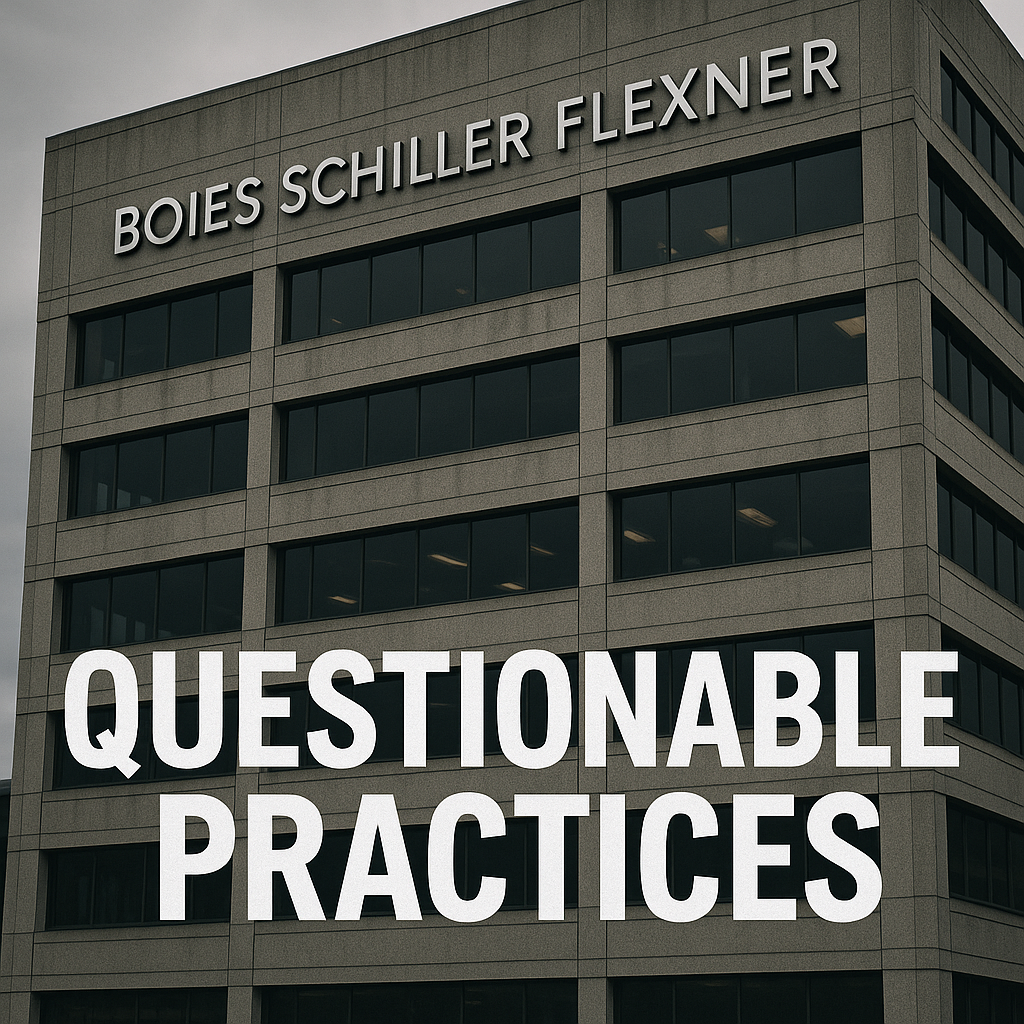Boies Schiller Flexner, once one of the brightest stars in Biglaw, has built its name on bold strategies, star clients, and sky-high profits. Founded in 1997 by David Boies after his dramatic exit from Cravath, the firm rose into the legal stratosphere, reaching as high as twelfth in the Vault 100 and boasting millions in profit per equity partner. Even now, BSF sits at No. 55 on Vault’s list and No. 118 in the Am Law 200, still formidable in both prestige and revenue. But the firm that once dazzled the legal world has also developed a knack for scandals — from its controversial defense of Theranos and its entanglement with Harvey Weinstein to its latest embarrassment: a high-profile AI blunder.
The most recent fiasco centers on John Kucera, a Los Angeles partner with two decades of experience, including more than a decade as a federal prosecutor. Kucera and BSF represent five women who accuse actor Danny Masterson and the Church of Scientology of harassment and intimidation after they reported Masterson’s sexual assaults. In the appeal of a California anti-SLAPP ruling, the plaintiffs’ response brief — prepared under Kucera’s direction — turned out to be riddled with glaring citation errors. Opposing counsel flagged passages that mischaracterized legal holdings, cited irrelevant cases, and even referenced one case that simply did not exist.
The errors bore what the Church’s lawyers called “the hallmarks of AI-generated case citations,” and Kucera soon admitted they were right. In a sworn declaration, he acknowledged that artificial intelligence tools had been used to help draft the brief and that safeguards meant to prevent such mistakes had failed. “I am embarrassed by and very much regret these errors,” he wrote, taking personal responsibility for failing to verify the citations before filing. BSF, he added, has policies and training in place around AI use, but those controls “did not work as intended”.
For opponents, the slip was a gift. “Oh, this is awful,” wrote blogger Tony Ortega. “Boies Schiller appears to have handed [Scientology] a big club to hit them over the head with.” The filing not only jeopardized the plaintiffs’ credibility but also allowed Scientology’s attorneys to press the narrative that their opponents were sloppy and unreliable. The Founder of Above the Law, David Lat, who dissected the debacle, didn’t pull punches either: “Involving a Vault 100 and Am Law 200 law firm that’s a litigation powerhouse, it’s arguably Biglaw’s biggest artificial-intelligence debacle to date.” Others quipped that the incident suggests BSF now has “ChatGPT litigating their cases.”
For BSF, the embarrassment was amplified by its reputation. Unlike a small shop dabbling in new technology, this is a firm that has built its identity around elite litigation. With $2.1 million in revenue per lawyer and nearly $4 million in profit per equity partner, BSF is a Biglaw heavyweight — and the sight of one of its briefs collapsing under fake citations was shocking.
Nor does this scandal exist in a vacuum. BSF has been here before, though in different forms. In its work for Theranos, the firm became so enmeshed with Elizabeth Holmes’s fraudulent startup that Boies himself sat on the board while his lawyers tried to muzzle whistleblowers. In the Weinstein saga, Boies personally signed off on a contract with Black Cube, the private intelligence outfit hired to dig up dirt on accusers — all while BSF was still representing The New York Times. Those controversies raised questions about judgment, conflicts of interest, and ethical blind spots. The AI fiasco may be less morally fraught, but it reveals a similar lack of control: the failure to anticipate how bold tactics can implode under scrutiny.
Boies Schiller Flexner remains deeply connected, still a member of the Biglaw elite. But its latest stumble shows how fragile prestige can be when a firm becomes as well known for scandal as for success. Whether the issue is a fraudulent client, a disgraced movie mogul, or an ill-considered reliance on artificial intelligence, the pattern is hard to miss. BSF still has the talent and resources to win cases. What it has yet to prove is whether it can stop undermining itself.



